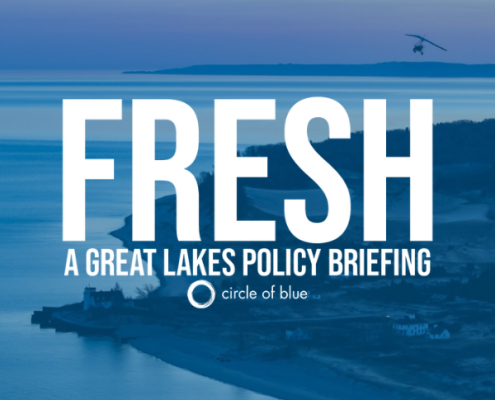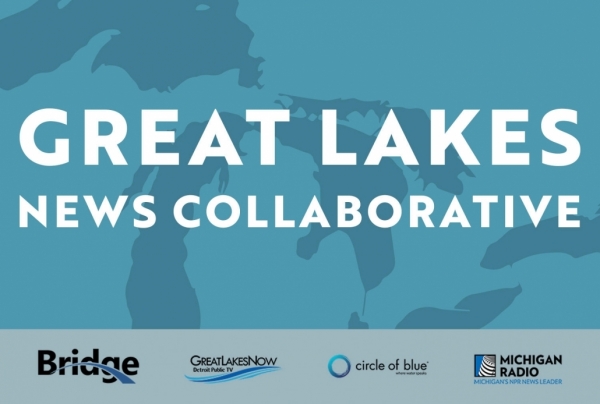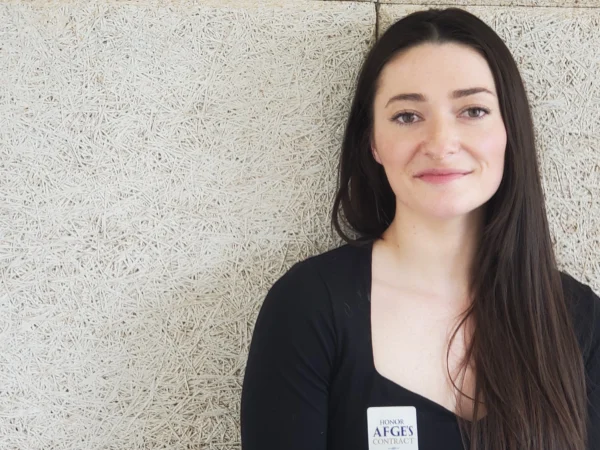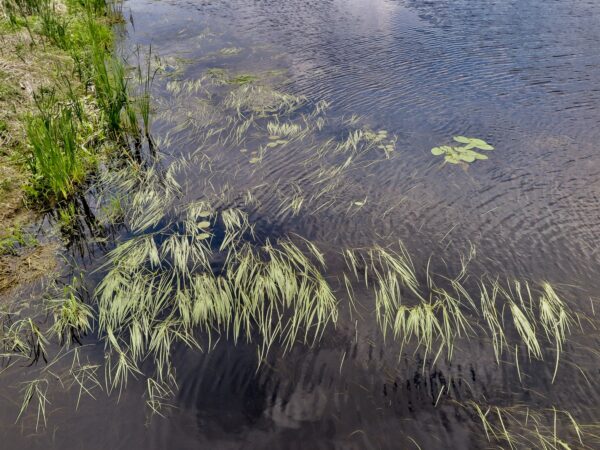
August 8, 2023
Fresh is a biweekly newsletter from Circle of Blue that unpacks the biggest international, state, and local policy news stories facing the Great Lakes region today. Sign up for Fresh: A Great Lakes Policy Briefing, straight to your inbox, every other Tuesday.
— Christian Thorsberg, Interim Fresh Editor
This Week’s Watersheds
- The new Michigan state budget, recently signed by Gov. Gretchen Whitmer, includes more than $1 billion for the Department of Environment, Great Lakes and Energy.
- The Ontario government has announced $6 million to support 30 multi-year projects aimed at protecting and conserving the Great Lakes.
- Coinciding with the summer’s extreme heat and citywide water pressure decreases, citizen and government scientists continue to map heat islands in Chicago.
- Wisconsin’s annual drinking water report shows 99 percent of public systems meet contaminant standards.
The Fond du Lac Band of Lake Superior Chippewa has become the most recent group to file suit against 3M, and other companies, over PFAS pollution.
“They are for a better environment for all, not just them. They know that by taking action, not only can they help just the tribes, they can help those surrounding communities as well.” — Roe Frazer, attorney representing the Fond du Lac Band.
The Fond du Lac Band of Lake Superior Chippewa has joined other tribes, cities, and towns in filing suit against chemical manufacturer 3M, Minnesota Public Radio reports. The lawsuit is over the company’s role in contaminating water with PFAS “forever chemicals.”
The lawsuit extends to 23 other companies and focuses on PFAS in firefighting foam, often used to quell oil fires on military bases or airports. The chemicals have seeped into the tribe’s groundwater wells, rivers, and streams, as well as Lake Superior itself on reservation lands.
The contamination has affected the tribe’s ability to hunt and fish in these areas — a right granted to them in a 1854 treaty — and it remains an existential threat to their spirituality, health, and lifeways.
Fresh from the Great Lakes News Collaborative

- Michigan tribes fight long odds to restore wild rice, their history — Bridge Michigan
- Diesel spill on Lake Michigan triggers multi-agency response — Michigan Radio
- Science Says What? Lessons learned from a deliberate dilbit spill — Great Lakes Now
The Great Lakes News Collaborative includes Bridge Michigan; Circle of Blue; Great Lakes Now at Detroit Public Television; and Michigan Radio, Michigan’s NPR News Leader. We work together to produce news and information about the impact of climate change, pollution, and aging infrastructure on the Great Lakes and drinking water. This independent journalism is supported by the Charles Stewart Mott Foundation. Find all the work here.

Study of Chicago’s ‘Heat Islands’ Heats Up
Chicago is one of 18 places across the country partnering with the National Oceanic and Atmospheric Administration (NOAA) to “train citizen scientists to measure and map the hottest parts of cities, known as urban heat islands,” WBEZ Chicago reports.
The data collected and shared with NOAA scientists will quantify how the summer’s extreme heat has exacerbated both health and environmental inequities. An analysis conducted by Climate Central revealed Chicago is one of the nation’s cities with the largest population of people living in heat islands, InsideClimate News reports.
About half of Chicagoland residents live in areas where temperatures are at least eight degrees higher than the city’s base temperature. The divergence in these areas is a consequence of little to no tree cover, and heat-absorbing roads and buildings.
Both the study and incidence of urban heat islands connect directly to water infrastructure and use. In some of Chicago’s hottest neighborhoods, water pressure was reported to be low due to water surges and residents opening fire hydrants to cool off.
In the News
Budget Set: The Michigan state budget allocated $600 million for water infrastructure — including protections to drinking water access, the replacement of lead pipes, updates to sewer systems, and more, Michigan Advance reports. In total, more than $1 billion dollars are designated for Michigan’s Department of Environment, Great Lakes and Energy. The Department of Natural Resources will receive $572.2 million, and the Department of Agriculture and Rural Development will be allotted $168.6 million.
Flying Colors: There are 11,231 public drinking water systems in Wisconsin, the most of any state, Wisconsin Public Radio reports. Last year according to an annual Department of Natural Resources report, 99 percent of these systems met contaminant standards. Still, officials caution the state not to “rest on its laurels,” and that consistent monitoring, testing, and improvements are essential for a healthy water future.
Looking Ahead
Ontario: Thirty projects — led and supported by tribes, community groups, non-profits, and universities — oriented toward protecting and conserving Great Lakes habitat will receive funding totaling $6 million from the Ontario provincial government, the Owen Sound Sun Times reports. Each project has a multi-year timeline, and “support commitments in the Canada-Ontario Agreement on Great Lakes Water Quality and Ecosystem Health and Ontario’s Great Lakes Strategy.” The projects include testing water quality, restoring wetlands, removing plastic waste from ecosystems, and supporting ecological decisions based on Indigenous knowledge.
Upcoming Events
August 11 — Great Lakes Watershed Field Course — learn more and register
August 15 — Great Lakes Restoration Initiative public meeting in Detroit — learn more
August 20-24 — American Fisheries Society 153rd Annual Meeting — learn more and register
Other News
EPA 40th Voyage: For the 40th consecutive year, EPA scientists and crew members are sailing for more than a month across the Great Lakes to take water profile measurements and temperatures, WISN Milwaukee reports.
Ohio Rivers: Findings in a recent report from the EPA show that Ohio’s major rivers — excluding the endangered Ohio River — have improved dramatically in health over the past 35 years, WOSU reports.
Catch more news at Great Lakes Now:
FRESH: Federal Judge Orders Line 5 Shutdown on Tribal Land in Wisconsin
FRESH: New Wisconsin Law Aims to Protect Watersheds From Farm Runoff




